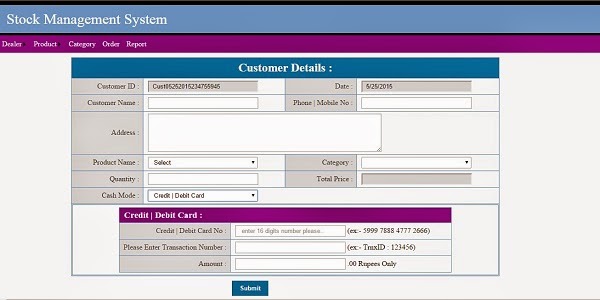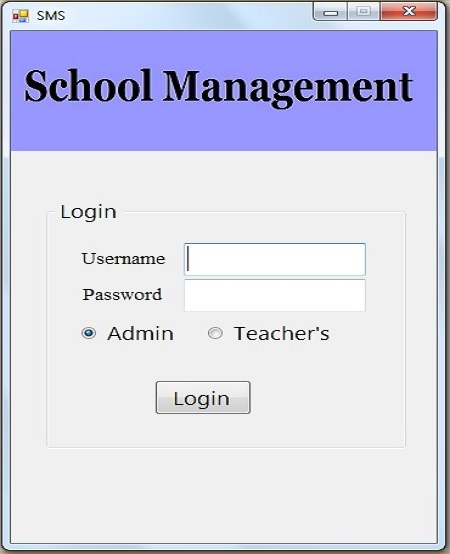Introduction:
In the intricate architecture of the Food Court Project, the BusinessLogic class stands as the driving force, orchestrating vital operations that bridge the gap between the application's frontend and the database. Let's delve into the core functionalities encapsulated within this business logic layer.
Database Connectivity:
The BusinessLogic class establishes a crucial link with the database through an instance of DataBaseLogic, facilitating seamless communication between the application and underlying data structures.
using System;
using System.Collections.Generic;
using System.Linq;
using System.Text;
using System.Data;
using FoodCourtBusinessObject;
using FoodCourtDatabaseLogic;
namespace FoodCourtBusinessLogic
{
public class BusinessLogic
{
DataBaseLogic dbLogic = new DataBaseLogic();
#region This Block related to Food_Item_Type_No and Food_Item_Type_Name
--- Code Go Here
}
}
Food Item Type Operations:
The business logic layer efficiently manages operations related to food item types:
Insert Food Item Type:
The AddFoodItemTypeData method enables the addition of new food item types, enhancing the variety offered in the food court.
#region Insert Food Item Type
public int AddFoodItemTypeData(BusinessObject ITObject)
{
return dbLogic.InsertFoodItemType(ITObject);
}
#endregion
Display Food Item Type to ComboBox:
The GetFoodItemType method retrieves food item types, providing a dynamic source for ComboBox display.
#region Display Food Item Type to ComboBox
public DataSet GetFoodItemType()
{
DataSet dstype = new DataSet();
dstype = dbLogic.GetIFoodtemType();
return dstype;
}
#endregion
Food Items Operations:
For individual food items, the business logic layer offers a spectrum of functionalities:
Insert Food Items:
InsertFoodItems seamlessly integrates new food items into the system, contributing to a diverse menu.
#region Insert Food Items
public int InsertFoodItems(BusinessObject itemsObject)
{
return dbLogic.InsertFoodItems(itemsObject);
}
#endregion
Get Food Items Price:
The GetFoodItemPrice method fetches the price of specific food items, crucial for billing and financial transactions.
#region Get Food Items Price
public double GetFoodItemPrice(BusinessObject FIPObj)
{
return dbLogic.GetFooditemPrice(FIPObj);
}
#endregion
Display Quantity & Price:
GetQtyPrice retrieves quantity and price information, aiding in the comprehensive display of food item details.
#region Display Quantity & Price
public DataSet GetQtyPrice(BusinessObject QtyObject)
{
return dbLogic.DisplayQtyPriceFoodItem(QtyObject);
}
#endregion
Display Bill Data to GridView:
The BindBillData method populates a GridView with relevant billing information, enhancing transparency in financial records.
#region Display Bill Data to GridView
public DataSet BindBillData(BusinessObject BObj)
{
return dbLogic.DisplayBillDataGridView(BObj);
}
#endregion
Bind Food Item Name to ComboBox:
BindFoodItemNames provides a dynamic source for ComboBox display, facilitating a user-friendly selection of food items.
#region Bind Food Item Name to ComboBox
public DataSet BindFoodItemNames(BusinessObject FINObject)
{
return dbLogic.GetFoodItemsName(FINObject);
}
#endregion
Employee Operations:
Efficient management of employee-related information is a cornerstone of the business logic layer:
Create Employee Record:
InsertEmployeeRecord method adds new employee records, streamlining workforce management.
#region Create Employee Record
public int InsertEmployeeRecord(BusinessObject empObject)
{
return dbLogic.CreateEmployeeAccount(empObject);
}
#endregion
Update Food Item Quantity and Stock Data:
The UpdateFoodItem_and_StockData method ensures accurate stock data and food item quantity updates, crucial for inventory management.
#region Update Food Item Quantity and Stock Data
public int UpdateFoodItem_and_StockData(BusinessObject updateObj)
{
return dbLogic.UpdateStockData(updateObj);
}
#endregion
Verify Employee Login Credentials:
Login validates employee login credentials, ensuring secure access to the system.
#region Verify Employee Login Credentials
public DataSet Login(BusinessObject loginObj)
{
return dbLogic.VerifyLoginCredientials(loginObj);
}
#endregion
Get Employee's Data:
getEmployees retrieves employee data, offering insights into the workforce within the food court.
#region Get Employee's Data
public DataSet getEmployees()
{
return dbLogic.GetEmployees();
}
#endregion
Update Employee:
The UpdateEmployee method enables administrators to update employee details, ensuring data accuracy.
#region Update Employee
public int UpdateEmployee(BusinessObject empUObj)
{
return dbLogic.UpdateEmployee(empUObj);
}
#endregion
Delete Employee's:
DeleteEmployee removes employee records, streamlining human resource management.
#region Delete Employee's
public int DeleteEmployee(BusinessObject eObject)
{
return dbLogic.DeleteEmployee(eObject);
}
#endregion
Reset Password:
The PasswordReset method provides a mechanism to reset employee passwords, enhancing security measures.
#region Reset Password
public int PasswordReset(BusinessObject prObj)
{
return dbLogic.ResetPassword(prObj);
}
#endregion
Billing Operations:
Efficient handling of billing transactions is paramount:
Inserting Bill Transaction and Master Details:
InsertBillTransaction method seamlessly integrates new billing transactions, maintaining an accurate record.
#region Inserting Bill Transaction and Master Details
public int InsertBillTransaction(BusinessObject BTObject)
{
return dbLogic.InsertBillTransaction(BTObject);
}
#endregion
Update Bill Master:
UpdateBillMaster ensures timely updates to the billing master, reflecting total sales and amount details.
#region Update Bill Master
public int UpdateBillMaster(BusinessObject BMObj)
{
return dbLogic.InsertBillMaster(BMObj);
}
#endregion
Conclusion:
The BusinessLogic class in the Food Court Project encapsulates a robust set of functionalities, ensuring the seamless flow of data between the application and the database. Its role in managing food item types, individual food items, employees, and billing operations is pivotal for the project's success, contributing to an efficient and user-friendly food court management system.
Download Source Code
To get more information regarding blood donar project source code like Business Object, Database & Stored Procedure, Database Logic and User Interface.





0 Comments